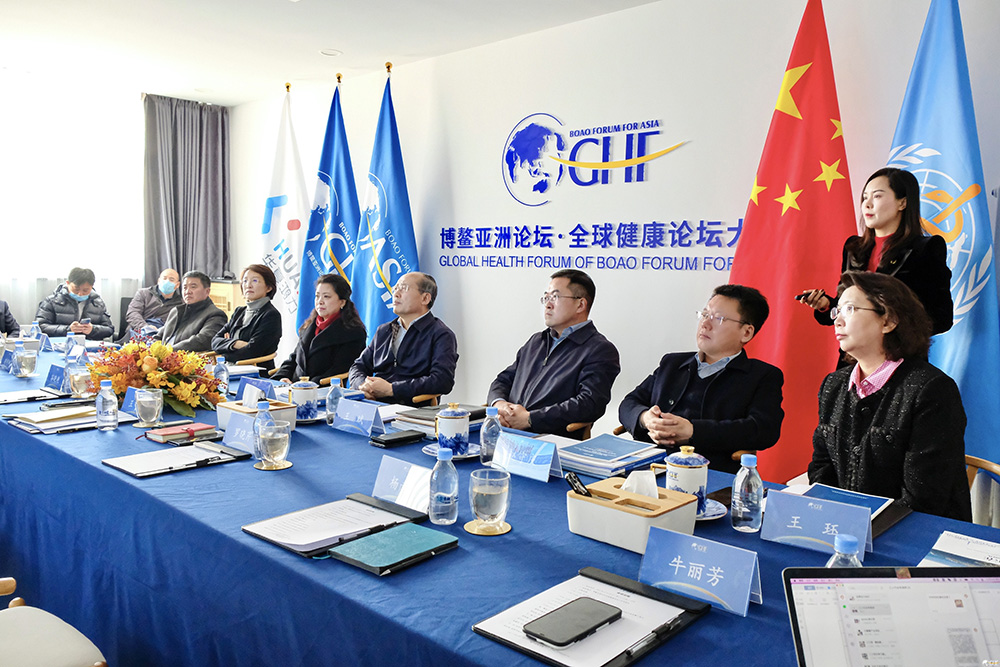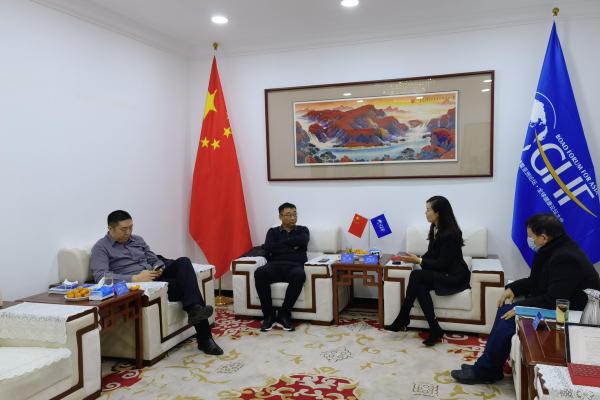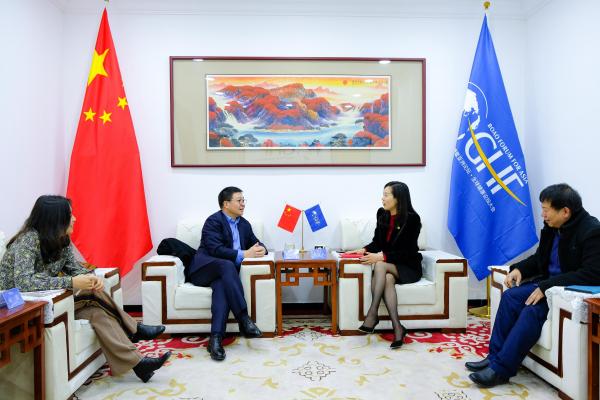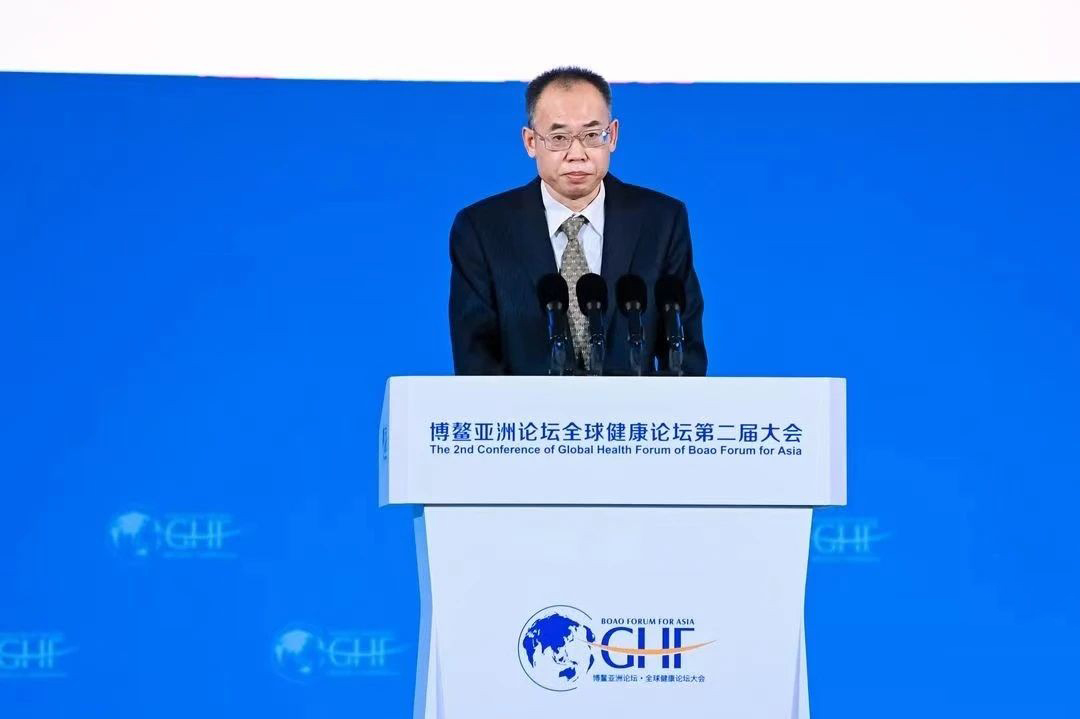
On the morning of June 2, Chen Jinfu, Deputy Administrator of National Healthcare Security Administration, delivered a speech at the first plenary of the 2nd Global Health Forum of Boao Forum for Asia, themed on “Health in all policies”.
Chen Jinfu said that without health, there will be no wellbeing for all, let alone common prosperity. The Chinese government has always put people's health in the first place, and focused on building a comprehensive and effective public health security system and on easing the burden on families in terms of medical care.
After more than two decades of reform and development, China has established the world's largest basic medical insurance system, and has achieved the goal of covering 1.3 billion people with medical insurance by improving policies, increasing government investment, and financing people to be insured, to ensure that our medical insurance provides support and assistance to everyone who needs it. On the basis of consolidating inpatient major medical insurance, we have continuously improved our policies,made medical insurance payments easier for the public and favorable for outpatient chronic diseases, promoted the primary medical services, the established a graded treatment system and improved health management.
Since 2018, the poor have been funded to join the basic medical insurance, major medical insurance and medical assistance. This achieved the full coverage of 230 million people and reduced the burden of individual contributions by 36.9 billion. Poverty alleviation policies have benefited a total of 530 million people in poverty, relieved the medical burden by 360 billion yuan, and helped nearly 10 million people in poverty to fight and eradicate poverty.
Since the outbreak of Covid-19, the Chinese government has decided at the first time to ensure payment for treatment of the patients and to medical institutions for admission. The medical insurance fund has preallocated a total of 19.4 billion yuan of special funds and settled 2.8 billion yuan of patients' expenses. At the same time, the Covid-19 vaccine is free of charge, and funds are raised in advance to support the vaccination and China's epidemic prevention financially.
Since 2018, the state has organized drug bidding and procurement for four times, involving 157 items, with an average price reduction of 53%. At present, the actual average cost savings is about 100 billion yuan. Meanwhile, the first bidding and procurement of high-value medical consumables was carried out this year, and the price of the winning coronary stent products was reduced from 13,000 yuan/each to 700 yuan/each, with an average reduction of 93%, and the annual cost savings is expected to reach more than 10 billion. At the same time, the medical insurance drug catalog was adjusted for three consecutive years, initially forming a dynamic adjustment mechanism of adjustment once a year, and a total of 433 new and good drugs were included. In the process of drug negotiations for the third time, 183 items were included, with an average reduction of 50%, and more wonder and high-quality drugs were included in the scope of medical insurance payments. The burden reduction for the public is 99.7 billion yuan in total, or about 100 billion yuan. The strategic purchase by medical insurance funds has significantly lightened the burden of the public in all aspects and expanded the accessibility of effective medical care, while it also encourages the supply-side reform of pharmaceutical services and promotes orderly competition, technological innovation and high-quality development of the pharmaceutical industry.
Long-term care insurance is an important institutional arrangement to cope with the aging population in China. In 2020, the Chinese government further expanded the pilot cities on the basis of summarizing the pilot projects in the first 15 cities. By the end of the year, the pilot long-term care insurance has covered 110 million people, with fund income of nearly 20 billion, benefiting a total of 1.36 million people and reliving the burden of the population by 16,000 yuan. The care system in the pilot areas is greatly improved by promoting long-term care insurance, and nearly 3,000 nursing institutions and care agencies have been included in the long-term care insurance designated service mechanism, while attracting social investment of 25.3 billion yuan and creating 1.31 million new related jobs. This shows that the pilot of the long-term care insurance system can ensure the quality of life and dignity of the disabled, as well as improve the quality of the labor supply side and restoring the virtue of traditional Chinese family. On the other hand, in terms of industrial development, it is more conducive to the sustainable health and more promising development of the elderly service system and the care service system.
Chen Jinfu concluded that the Chinese government will focus on deepening the reform of the medical insurance system, establishing a long-term mechanism to prevent poverty caused by illness and return to poverty because of illness, and improving the mechanism of medical assistance. At the same time, we will play the role of strategic purchase of medical insurance, promote the high-quality innovative development of medical insurance and pharmaceutical services, give full play to the advantages of the system, continue to enhance the people's sense of health fulfillment, happiness and security, and make contribution to the common prosperity of the Chinese people.

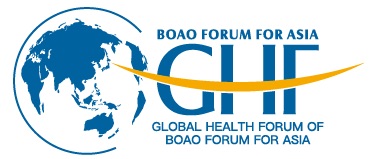

 What’s on
What’s on
 Partner application
Partner application Download
Download Hot News
Hot News
